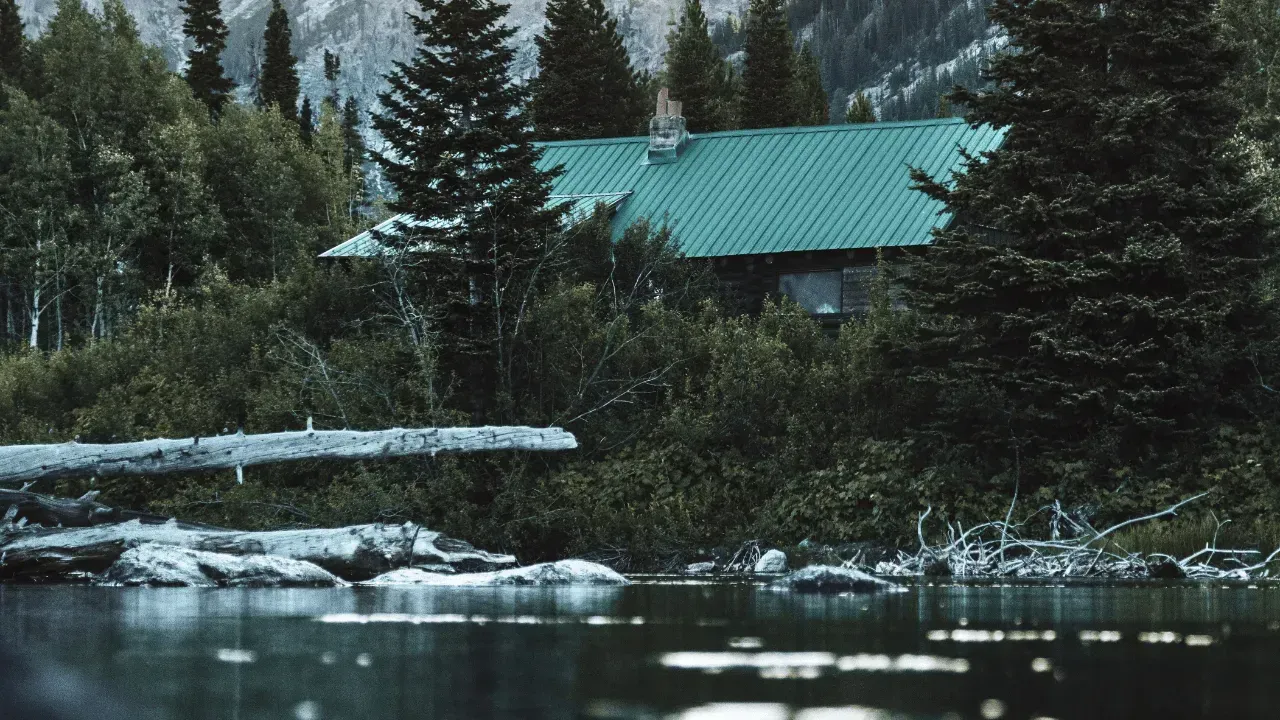Wildfire Risks and Builders Risk Insurance in Colorado
See How We're Different
or call us: 303-421-5123
In recent years, Colorado has experienced an alarming increase in wildfire risks. The combination of dry conditions, high winds, and human activity has made the state particularly vulnerable to devastating wildfires. As a result, homeowners and builders face significant challenges in protecting their properties. Thankfully, builders risk insurance provides a crucial safety net, offering financial protection in the event of wildfire damage. In this article, we will explore the wildfire risks in Colorado, the basics of builders risk insurance, and its role in mitigating these risks.
Understanding Wildfire Risks in Colorado
Colorado, known for its breathtaking landscapes and natural beauty, is facing increasing wildfire risks due to the effects of climate change. The rising temperatures, prolonged droughts, and reduced snowpack have created the perfect conditions for wildfires to spread rapidly, posing a significant threat to both human lives and the environment.
One of the key factors contributing to the heightened wildfire risks in Colorado is the warming climate. As temperatures continue to rise, the vegetation patterns in the state are being altered, leading to a higher density of dry and combustible materials. This means that even a small spark can ignite a devastating wildfire, causing widespread destruction and endangering communities.
Moreover, human activity plays a substantial role in the occurrence of wildfires in Colorado. Campfires left unattended, discarded cigarettes, and equipment malfunctions are common causes of wildfires. With the growing population and development in fire-prone areas, the potential for human-caused wildfires has significantly increased, further exacerbating the risks faced by the state.
The Impact of Climate Change on Wildfire Risks
Climate change has a profound impact on the wildfire risks faced by Colorado. The hotter and drier conditions resulting from climate change increase the intensity and frequency of wildfires. Scientific predictions indicate that the state will experience longer fire seasons and a higher number of extreme fire events in the future.
These changes have significant implications for homeowners and builders in Colorado. Adequate insurance coverage becomes even more crucial as the risks associated with wildfires escalate. Homeowners must be prepared for the potential devastation caused by wildfires and take necessary precautions to protect their properties.
Common Causes of Wildfires in Colorado
Understanding the common causes of wildfires is essential in minimizing the risks faced by Colorado. Shockingly, human-related activities account for approximately 90% of wildfires in the state. Practicing responsible behavior is of utmost importance, such as properly extinguishing campfires, following local fire restrictions, and ensuring equipment is well-maintained to prevent malfunctions.
By taking individual responsibility and adhering to fire safety guidelines, individuals can play a vital role in reducing the number and impact of wildfires in Colorado. It is crucial to raise awareness about the causes of wildfires and promote responsible behavior to protect the state's natural resources and communities.
The Economic and Environmental Consequences of Wildfires
The consequences of wildfires extend far beyond the immediate destruction they cause. The economic impact of wildfires can be staggering, with billions of dollars spent on firefighting efforts, property damage, and ecosystem restoration. The financial burden placed on communities affected by wildfires can be long-lasting and challenging to overcome.
Furthermore, wildfires have far-reaching environmental consequences. The release of carbon dioxide, a major greenhouse gas, during wildfires contributes to climate change, further exacerbating the conditions that lead to more frequent and intense wildfires. Additionally, the destruction of habitats and the release of pollutants into the air during wildfires have detrimental effects on the ecosystem, impacting both wildlife and human health.
It is crucial for policymakers, communities, and individuals to recognize the severity of the economic and environmental consequences of wildfires. Taking proactive measures to prevent wildfires, such as implementing effective fire management strategies and promoting sustainable land-use practices, is essential to mitigate the risks and protect the future of Colorado's natural resources.
An Overview of Builders Risk Insurance
Builders risk insurance is a crucial component in safeguarding construction projects from a wide range of risks, including the ever-present threat of wildfires. This specialized insurance coverage provides comprehensive protection for both new construction and renovations, ensuring that structures, materials, and equipment on site are shielded from potential perils. With builders risk insurance, project owners can rest assured that their investments are well-protected against hazards such as fire, lightning, and vandalism.
The Basics of Builders Risk Insurance
Builders risk insurance policies are specifically tailored to cover construction projects throughout the entire construction period, from groundbreaking to completion. This comprehensive coverage extends to the structure itself, as well as the materials and equipment utilized in the construction process. However, it is important to note that builders risk insurance does not cover damages caused by faulty workmanship or design, as these fall under different forms of liability insurance.
When it comes to purchasing builders risk insurance, there are typically three key parties involved: the property owner, contractor, and developer. It is of utmost importance to select an insurance policy that accurately reflects the project's value and adequately addresses the potential risks it may encounter.
What Does Builders Risk Insurance Cover?
Builders risk insurance provides coverage against a wide range of perils that can pose a threat to construction projects. This includes protection against fire, explosions, lightning strikes, and wind damage, which are all common risks faced in the construction industry. In addition to these perils, builders risk insurance also offers financial protection against theft, vandalism, and certain types of water damage.
Considering the specific context of wildfire risks in certain regions, such as Colorado, builders risk insurance plays a vital role in mitigating the potentially devastating financial impact of fire-related damages. By having this coverage in place, construction projects can be shielded from the unpredictable and destructive forces of wildfires, allowing for a greater sense of security and peace of mind.
The Limitations of Builders Risk Insurance
While builders risk insurance is undeniably a valuable tool in managing wildfire risks and other perils, it is important to understand its limitations. For instance, builders risk insurance typically does not cover damages caused by earthquakes, floods, or acts of terrorism. These types of risks may require additional insurance coverage to adequately protect the project.
Furthermore, builders risk insurance generally excludes losses resulting from poor workmanship or design. This highlights the importance of maintaining high standards of construction quality and ensuring that all necessary precautions are taken to minimize the risk of errors or defects. Understanding the limitations of builders risk insurance is crucial in determining whether additional coverage is necessary to address any potential gaps in protection.
In conclusion, builders risk insurance is a vital component in the construction industry, providing comprehensive coverage against a wide range of risks. By understanding the basics of this insurance coverage, its coverage scope, and its limitations, project owners, contractors, and developers can make informed decisions to protect their investments and ensure the successful completion of construction projects.
The Role of Builders Risk Insurance in Mitigating Wildfire Risks
Builders risk insurance plays a critical role in mitigating the risks posed by wildfires. By offering financial protection against fire damage, it allows homeowners and builders to proceed with confidence, knowing that they are covered in case of an unfortunate event. It ensures that any losses incurred as a result of wildfires are not a significant setback for the project or the individuals involved.
How Builders Risk Insurance Covers Wildfire Damage
In the event of wildfire damage, builders risk insurance covers the costs of repairing or replacing the damaged property. This includes the structure, materials, and equipment affected by the fire. By providing financial assistance, builders risk insurance helps rebuild and recover from the devastating impact of wildfires.
When a wildfire strikes, it can engulf everything in its path, leaving behind a trail of destruction. The flames can consume homes, businesses, and natural landscapes, leaving people devastated both emotionally and financially. However, with builders risk insurance, there is a glimmer of hope amidst the chaos.
Builders risk insurance policies are specifically designed to address the unique risks associated with construction projects, including the threat of wildfires. These policies typically cover not only the structure being built but also the materials, equipment, and tools on-site. This comprehensive coverage ensures that all aspects of the project are protected, minimizing the potential financial impact of a wildfire.
Imagine a scenario where a homeowner is in the process of building their dream house in a picturesque mountain area. The construction is well underway, with the frame of the house standing tall and the finishing touches just around the corner. Suddenly, news of an approaching wildfire spreads, causing panic and uncertainty. However, because the homeowner had the foresight to obtain builders risk insurance, they can breathe a little easier.
As the wildfire rages through the area, the house is not spared from its wrath. The flames consume the structure, leaving nothing but charred remains. Without builders risk insurance, the homeowner would be left with a devastating loss and the daunting task of starting from scratch. However, thanks to their insurance coverage, they can begin the process of rebuilding without shouldering the entire financial burden.
Builders risk insurance covers not only the cost of repairing or rebuilding the structure but also the materials and equipment that were damaged or destroyed in the fire. This ensures that the project can resume without significant delays, allowing the homeowner to move forward with their plans.
The Importance of Adequate Insurance Coverage
As wildfire risks continue to escalate in Colorado, having adequate insurance coverage becomes paramount. Insufficient coverage may result in significant financial burdens, hampering the ability to recover from a wildfire's aftermath. Homeowners and builders should carefully evaluate their insurance policies to ensure they provide adequate protection against wildfire risks.
Wildfires have become an increasingly common occurrence in recent years, with climate change and other factors contributing to their frequency and intensity. As a result, the need for comprehensive insurance coverage has never been greater.
When it comes to builders risk insurance, it is crucial to assess the policy's coverage limits and exclusions. Adequate coverage should not only account for the cost of rebuilding the structure but also consider the potential costs of replacing materials, equipment, and any additional expenses that may arise during the rebuilding process.
Furthermore, it is essential to review the policy's terms and conditions to ensure that it covers wildfire damage specifically. Some insurance policies may have exclusions or limitations when it comes to natural disasters, including wildfires. By carefully examining the policy, homeowners and builders can identify any gaps in coverage and seek additional protection if necessary.
Ultimately, builders risk insurance provides peace of mind in the face of wildfire risks. It allows homeowners and builders to focus on their projects without constantly worrying about the potential financial consequences of a wildfire. With the right insurance coverage in place, they can navigate the challenges posed by wildfires with confidence, knowing that they have a safety net to rely on.
Navigating Insurance Claims After a Wildfire
In the unfortunate event of a wildfire, navigating the insurance claims process can be overwhelming. However, understanding the steps involved and adhering to the requirements can help streamline the process and ensure a smoother settlement.
Steps to Filing a Builders Risk Insurance Claim
When filing a builders risk insurance claim after a wildfire, several key steps need to be followed. These include documenting the damages, notifying the insurance company promptly, and providing necessary supporting documentation. Engaging with the insurance company's adjuster and maintaining open communication throughout the process is crucial.
Understanding the Claims Process
The claims process for builders risk insurance typically involves the inspection of damages, negotiation of the claim settlement, and the final reimbursement. As with any insurance claim, it is essential to maintain detailed records, including photographs, invoices, and other supporting documents. This documentation will strengthen the claim and expedite the settlement process.
Future Outlook: Wildfires and Insurance in Colorado
The future outlook for wildfires in Colorado is grim. Climate change projections indicate an increasing trend in wildfire risks, compounded by population growth and development in fire-prone areas. Builders risk insurance will continue to play a crucial role in managing these risks and providing the necessary financial protection for homeowners and builders.
Predicted Trends in Wildfire Risks
Scientific predictions point towards longer and more severe fire seasons in Colorado. As temperatures rise and droughts persist, the risk of wildfires intensifies. Additionally, the growing wildland-urban interface increases the vulnerability of communities to fire events. These predicted trends necessitate proactive measures in preparedness and insurance coverage.
The Evolving Landscape of Builders Risk Insurance
The increasing wildfire risks in Colorado are driving changes in the insurance industry. Insurance providers are reevaluating their policies and coverage options to address the emerging challenges. Furthermore, there is a growing emphasis on educating homeowners and builders about the importance of adequate insurance coverage and risk mitigation strategies.
Conclusion
Wildfire risks in Colorado pose significant challenges for homeowners and builders. The combination of climate change, human activity, and development in fire-prone areas increases the potential for devastating wildfires. In this dynamic landscape, builders risk insurance provides essential protection, offering financial support when wildfires strike. Understanding the risks, having adequate coverage, and navigating the claims process are crucial steps in mitigating the impact of wildfires and ensuring a resilient future in Colorado.





